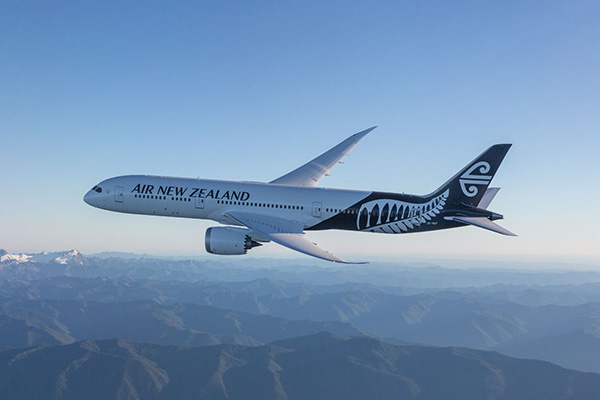Air New Zealand abandons 2030 carbon reduction targets
 James Chapple
James ChappleAir New Zealand has dropped its 2030 carbon reduction targets, citing poor availability of new, more efficient aircraft, the cost of alternative fuels and a lack of support for the transition.
The carrier has confirmed, "after careful consideration", it will withdraw from the Science-Based Targets initiative (SBTi), two years after targeting a near-30% reduction in carbon intensity by 2030.
It was the SBTi that validated Air New Zealand’s 2030 carbon intensity reduction target of 28.9% from a 2019 baseline. At the time, Air New Zealand said this would equate to a 16.3% reduction in absolute emissions over the period.
Air New Zealand said on Tuesday (30 July), almost two years to the day its targets were validated by the SBTi, "many of the levers needed to meet the target" were outside its direct control and "remain challenging".
These, it said, included the availability of new aircraft, the affordability and availability of alternative jet fuels, and global and domestic regulatory and policy support.
"In recent months, and more so in the last few weeks, it has also become apparent that potential delays to our fleet renewal plan pose an additional risk to the target’s achievability," said Air New Zealand chief executive Greg Foran.
"It is possible the airline may need to retain its existing fleet for longer than planned due to global manufacturing and supply chain issues that could potentially slow the introduction of newer, more fuel-efficient aircraft into the fleet.
"As such and given so many levers needed to meet the target are outside our control, the decision has been made to retract the 2030 target and withdraw from the SBTi network immediately."
2050 targets remain
The carrier said work was under way to consider new near-term carbon reduction targets, which it said could "better reflect the challenges relating to aircraft and alternative jet fuel availability within the industry".
Air New Zealand chair Dame Therese Walsh insisted the airline "remained committed to reaching its 2050 net zero carbon emissions target".
"Our work to transition away from fossil fuels continues, as does our advocacy for the global and domestic regulatory and policy settings that will help facilitate Air New Zealand, and the wider aviation system in New Zealand, to do its part to mitigate climate change risks," she said.
Sign up for weekday travel news and analysis straight to your inbox

James Chapple
Supplier Directory
Find contacts for 260+ travel suppliers. Type name, company or destination.














